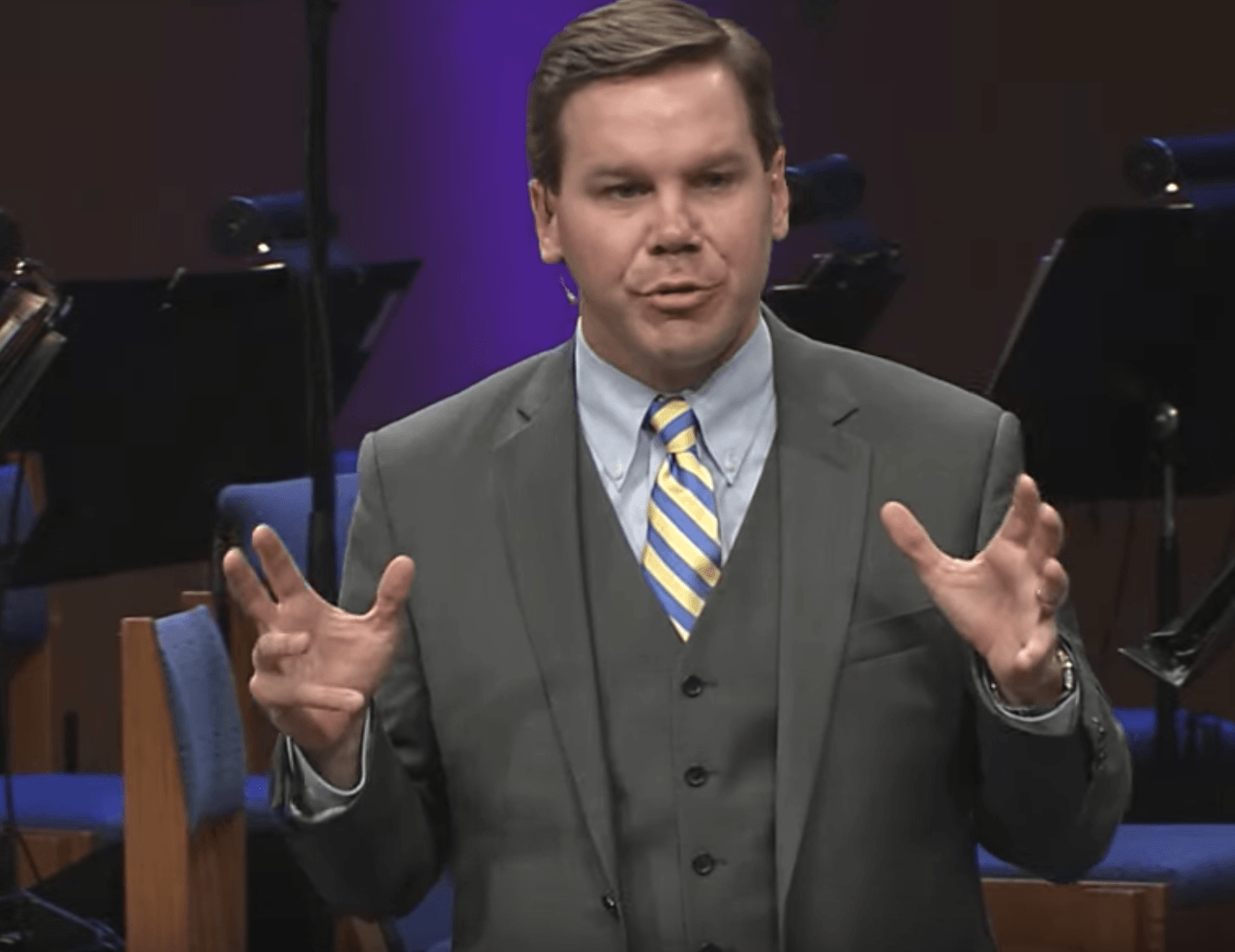When First Baptist Church of Jacksonville, Fla., announced all members would have to sign a statement on “biblical sexuality” or be kicked out, the idea sounded novel to most Baptists. Baptists in America are not accustomed to being required to sign or give assent to faith statements.
But the Florida church is not alone in this tactic. In Colorado and beyond, an entire “family” of churches affiliated with the Southern Baptist Convention and its North American Mission Board makes a similar demand of members. The difference is this affirmation is baked in to church membership and assumed, not signed.
A ‘family’ of churches
The Calvary Family of Churches is a novel construct in Baptist life. It is a closely linked network of churches that agree to cooperate in everything from branding to theology to missions — while also remaining a part of the SBC, the Colorado Baptist Convention and local Baptist associations. Most of the churches are based in Colorado, but some are located in other Western states.
And every congregation, every pastor and every member of this family must share a view of sexuality articulated in the group’s bylaws.

Mark Hallock
BNG reached out to Mark Hallock, president of the network and lead pastor at Calvary Church Englewood, for further explanation on this arrangement but received no response in two weeks.
Article 12 of the Calvary bylaws is titled “Marriage and Human Sexuality.” It states: “Marriage is a biblical institution established by God as clearly described in the Christian Bible. This church recognizes that marriage is the uniting of one man and one woman in covenant commitment for a lifetime. Accordingly, this church, its pastors, elders, deacons, covenant members, ministry staff, interns and church staff will not participate in or perform same-sex unions or same-sex marriages, nor shall its property or resources be used for such purposes. The church reserves the right to refuse to allow use of the church property or facilities to perform any wedding ceremony or other event that, in its sole discretion, is inconsistent with the church’s Statement of Faith (see Baptist Faith and Message) and contrary to biblical standards for marriage and with this marriage policy.”
The article then adds a section on “human sexuality” that states: “The Bible teaches that legitimate sexual relations are exercised solely within marriage. This church opposes all forms of sexual immorality, including adultery, homosexuality, cohabitation and pornography.”
“Every pastor, elder, deacon, ministry staff, intern, church staff, volunteer and member by virtue of their membership, affirms their agreement with this Article 12.”
And then this requirement: “Every pastor, elder, deacon, ministry staff, intern, church staff, volunteer and member by virtue of their membership, affirms their agreement with this Article 12 and agrees to conduct themselves in a manner with which it is consistent.”
Thus, being affiliated in any way with the Calvary Family of Churches implies consent with the network’s views on marriage and sexuality.
These requirements for membership are not so explicitly stated on the group’s website. They are, instead, embedded in the bylaws. Although church leadership did not respond to BNG’s request for explanation, BNG obtained a copy of the bylaws from another local source.

The network’s website does list major beliefs, including its adherence to complementarian theology: “Both husbands and wives are responsible to God for spiritual nurture and vitality in the home, but God has given to the man primary responsibility to lead his wife and family in accordance with the servant-leadership and sacrificial love characterized by Jesus Christ. This principle of male headship should not be confused with, nor give any hint of, domineering control. Rather, it is to be the loving, tender and nurturing care of a godly man who is himself under the kind and gentle authority of Jesus Christ.”
When existing churches come into the “family,” all the members of those congregations must agree with the network’s stance on marriage and family and sexuality.
Acts 29 and NAMB
The Calvary Family of Churches explicitly identifies its affiliation with the SBC’s NAMB and with another network called Acts 29 — a church-starting group of mainly Reformed pastors and churches who share theology and praxis. Acts 29 previously was led by the flamboyant and controversial pastor Mark Driscoll and now is run by North Texas pastor Matt Chandler.
While not all church plants supported by NAMB are affiliated with Acts 29 and not all church plants affiliated with Acts 29 are supported by NAMB, there is a close connection between the two organizations. Over the past three decades, the SBC has experienced a resurgent form of Calvinism that is not a majority view but holds significant sway.
Calvinist, or Reformed, churches — such as those in the Calvary Family of Churches — typically are led by a group of all-male elders. This is a different model than typical Southern Baptist churches that elect deacons, but it is common in Reformed and nondenominational churches.
SBC position on sexuality
For years, the SBC has taken a conservative view on marriage and sexuality. This has found visible expression in a series of nonbinding resolutions adopted by messengers to SBC annual meetings.
For example, in 1991, a resolution on sexuality condemned “any abuse of sexuality, including premarital sex, adultery, rape, incest, pornography, promiscuity, prostitution, and homosexuality.” It affirmed “commitment to the biblical standard of sexuality, to the institution of marriage as the joining of a man and a woman before God, and to the family as the foundation of human life and society.”
Then in 2009, SBC messengers declared that “any sexual behavior outside of this husband/wife marriage relationship is sinful, including premarital sex, adultery, bestiality, and pornography” and “homosexual behavior is specifically prohibited and condemned in both the Old and New Testaments” and “any public policy action normalizing unbiblical sexual behavior or giving homosexual unions the legal status of marriage is diametrically opposed to God’s word.”
What’s different now is the determination of a few SBC churches to make affirmation of these views a condition of membership.
In 2012, as the fight for marriage equality was gaining steam nationwide, SBC messengers resisted: “It is regrettable that homosexual rights activists and those who are promoting the recognition of ‘same-sex marriage’ have misappropriated the rhetoric of the Civil Rights Movement. … Messengers to the Southern Baptist Convention meeting … oppose any attempt to frame ‘same-sex marriage’ as a civil rights issue” and “homosexuality does not qualify as a class meriting special protections, like race and gender.”
The issues of sexuality, gender and marriage have been addressed repeatedly by the SBC, so the will of the convention is well known. What’s different now is the determination of a few SBC churches to make affirmation of these views a condition of membership.
Reaction in Jacksonville
Back in Florida, First Baptist Church of Jacksonville held an open forum for members to express their views and ask questions about the new requirement to sign a statement on “biblical sexuality.”

Heath Lambert
There, Senior Pastor Heath Lambert told congregants the church “is not closing our doors to anybody,” according to First Coast News. “If you disagree with us, you are welcome here. Not everybody can be a member here, but you are welcome here.”
In a separate blog post on the church’s website, Lambert justified the sexuality statement as “a very straightforward and biblical statement. Without singling out any one specific sin, it summarizes God’s design for gender, marriage and sexuality.”
He called it a “positive statement” that “equally forbids the range of human sinful sexual expression, including fornication, adultery, pornography, homosexuality, transgenderism and others.”
The Jacksonville church has received “a windfall of support from our own congregation as well as religious leaders around the country,” he wrote. “There is great enthusiasm for this clear stand, and leaders in the religious and legal world have asked permission to use the statement in their own context.”
Related articles:
SBC resolution challenges Christians who self-identify as gay
Biblical orthodoxy 2023: Sign or get ‘churched’ | Opinion by Bill Leonard


